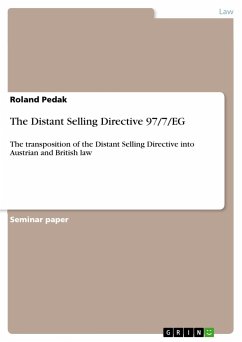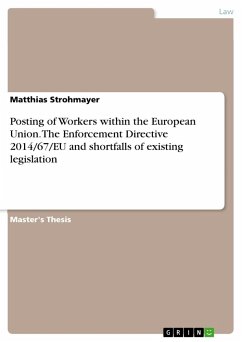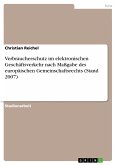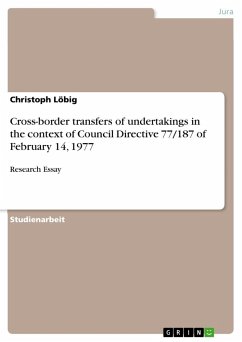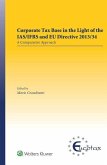Seminar paper from the year 2006 in the subject Law - Comparative Legal Systems, Comparative Law, grade: 2,0, University of Vienna (Institut für Unternehmens und Wirtschaftsrecht), course: Diplomandenseminar aus Technologierecht, language: English, abstract: On behalf of international e-commerce law there are a lot of different entities that deal with international trade law. For example there is the UNCITRAL ( United Nations Commissions on International Trade Law) embodied in the United Nations. In this context the UNCITRAL´s report "UNCITRAL Model Law on Electronic Commerce" has to be mentioned.The problem of UNCITRAL is that it cannot produce any binding instruments on international basis. It can only give recommendations for the national regulations of the membership states. The states themselves can choose to follow these "model laws" by UNCITRAL. On the other side there is the WTO (World Trade Organisation), which prepares on behalf of its members international treaties. InEurope, the e-commerce law has been enforced by the European Union - as well as the Counsel of Europe for certain topics like cyber crime. Examples for European legislation are the E-C directive, the Distance Selling Directive, and the E-Privacy Directive. In general, these directives focus on the problems that come along with the so-called "information-society", like copyrights of software and their protection, problems with databases and personal information and so on.In Austria the Distant Selling Directive has been transposed into the so-called "Konsumentenschutzgesetz," with 1.June 2000. The UK Consumer Protection Regulations came into force on 31 October 2000 The provisions of the Distance Selling Directive are only the minimum level of protection laid down by the European Union. Each member state is free to protect its consumers better, but every consumer can rely that he has at least this minimum protection - Art 12 Distance Selling Directive.

